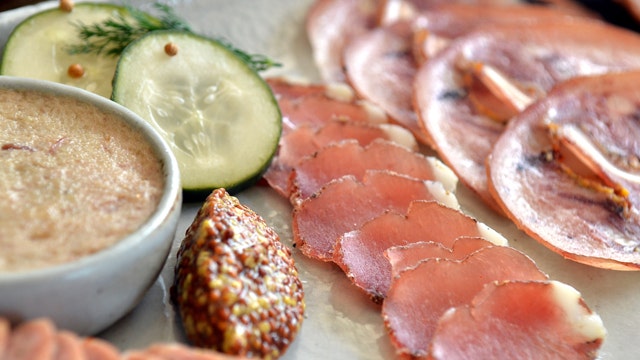Everything you need to know about charcuterie
Chef Steve McHugh of Cured restaurant shares tips to building a balanced charcuterie plate
Do you know why cured meats are pink?
France’s national Agency for Food, Environmental and Occupational Health & Safety (ANSES) recently confirmed a link between colon cancer and nitrites as food additives, according to the health’s agency report earlier this week.
"This Tuesday, July 12, ANSES presented the conclusions of its scientific assessment of the risks associated with the consumption of nitrites/nitrates, following a referral from the Government," said the French Ministry of Agriculture and Food Sovereignty in a recent press release.
"The conclusions of ANSES's risk assessment call for reducing the use of nitrites used as food additives and recommend limiting as much as possible the addition of nitrites/nitrates to foodstuffs: The aim is to limit their use as strictly necessary."
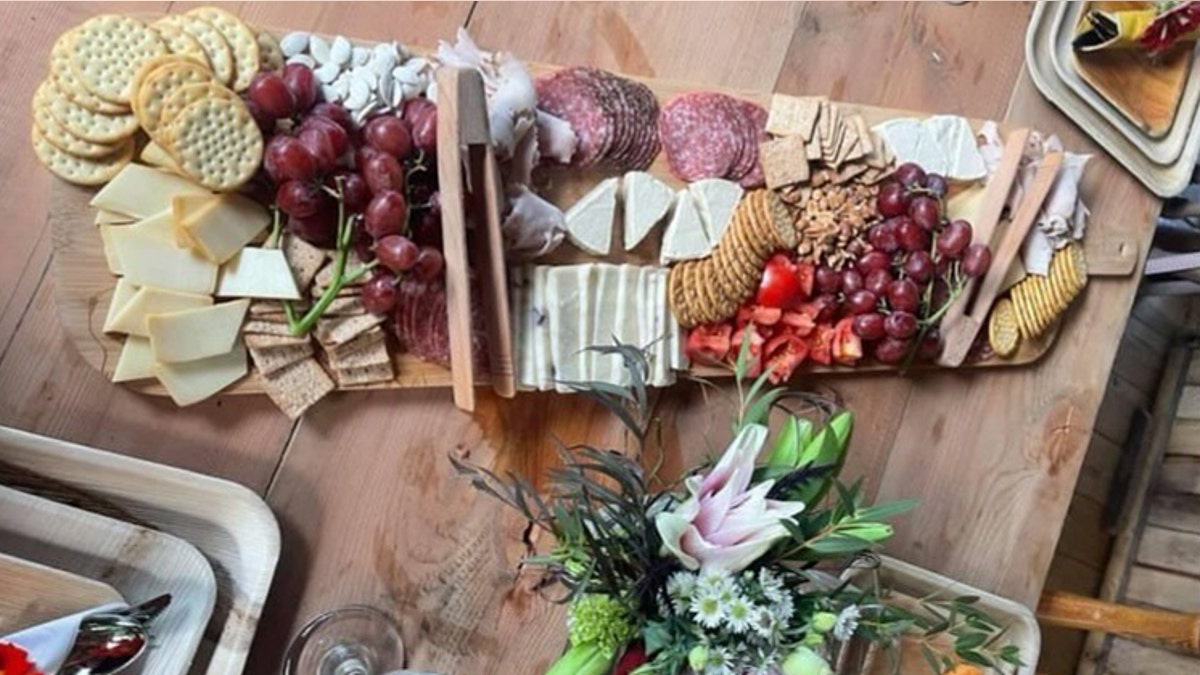
A charcuterie board is shown here in an aerial photo. The French health agency said that reducing the consumption of food additives needs to be balanced with supporting food safety.
This comes after a 2015 World Health Organization (WHO) report that classified processed meat as carcinogenic because of "sufficient evidence" that the type of meat can lead to cancers such as colorectal cancer.
But the press release conveyed an important caution.
While nitrates are unlikely to cause harm, when the body converts them into nitrites they can become harmful.
It said reducing the food additives must be balanced with supporting food safety.
Nitrates have one extra oxygen atom compared to nitrites. However, while nitrates are unlikely to cause harm, when the body converts them into nitrites they can become harmful, according to Healthline.
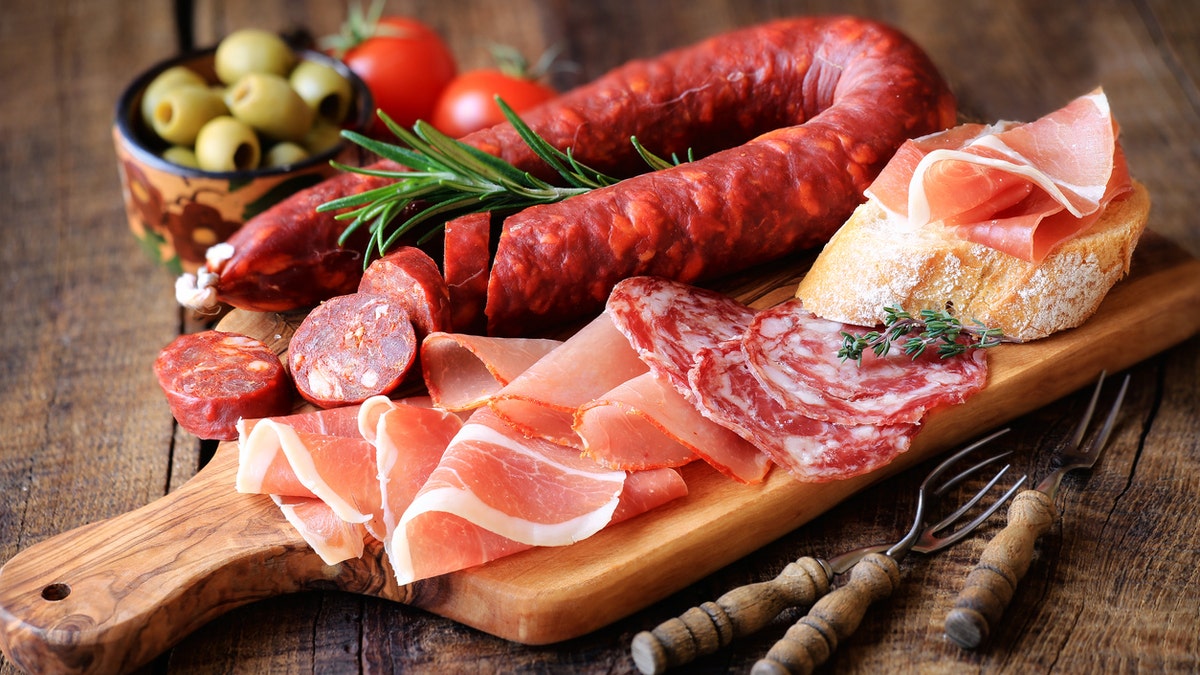
A cured meat platter of traditional Spanish tapas is served on a wooden board with olives and bread. Both nitrates and nitrites are used as food additives, according to the French agency for food, health and safety.
"Manufacturers add nitrites to meat to preserve them," according to the medical outlet.
"In meat, nitrites turn into nitric oxide. This reacts with proteins in the meat, changing its color [to pink or red] and helping preserve it."
Both nitrates and nitrites are used as food additives, mostly in delicatessen meat and processed meat because they decrease the risk of bacterial infection, per the ANSES report.
"The higher the exposure to these compounds, the greater the risk of colorectal cancer in the population," the report concluded.
"Concerning nitrites, over half of our exposure [in France] is related to the consumption of delicatessen meat due to the nitrite additives used to prepare it," according to the ANSES report.
ANSES analyzed published cancer studies ever since the reference work of the European Food Safety Authority in 2017 and the International Agency for Research on Cancer in 2018.
GRILLED SALMON SKEWERS FOR SUMMER BARBECUES: TRY THE RECIPE
"The higher the exposure to these compounds, the greater the risk of colorectal cancer in the population," the report concluded.
The French parliament prompted the report after approving a bill earlier this year to decrease the use of nitrite in cured meats — though there was a concern a complete ban of the food preservative was possible when the report issued its findings, according to multiple reports.
The ministry said the ANSES findings do not justify a complete ban on nitrites and nitrates — as approximately 99% of adults and children in France do not exceed the allowable daily intakes for all exposures to the food additives.
But the ministry said the findings by ANSES do not justify a complete ban on nitrites and nitrates — as approximately 99% of adults and children in France do not exceed the allowable daily intakes for all exposures to the food additives.
The food industry in France is also defending the use of the food preservative.
The charcuterie sectors in France already produce meats that are below the thresholds allowed by European regulations for the use of nitrites and nitrates, per the press release.
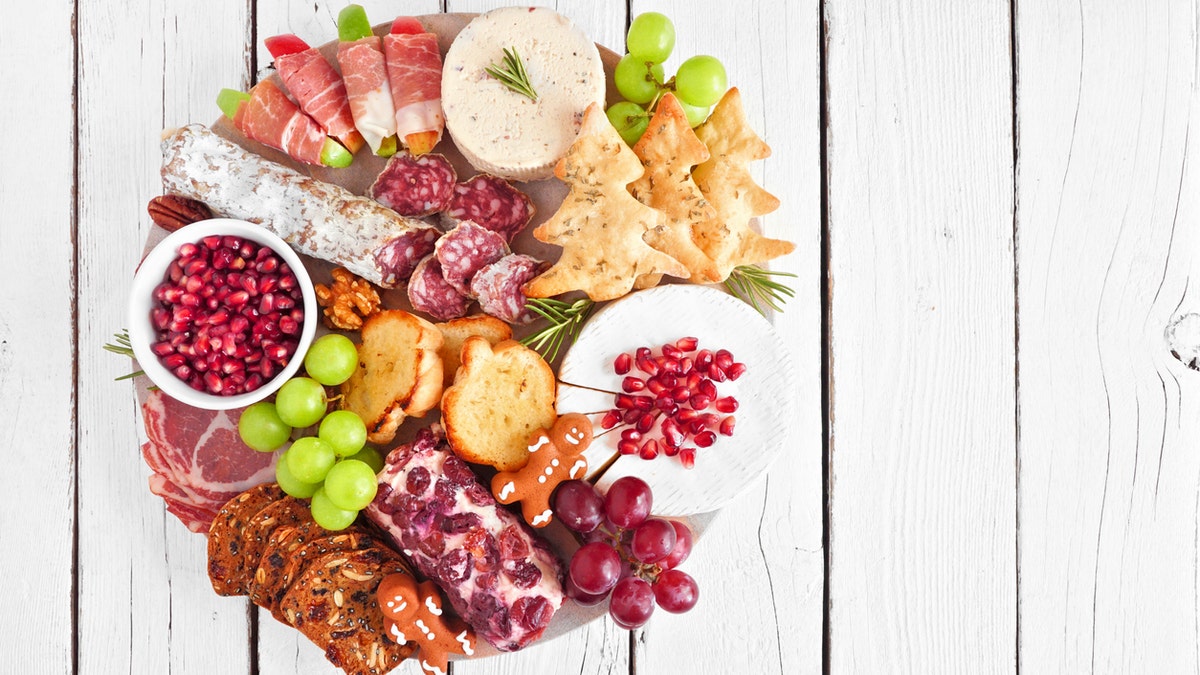
A charcuterie board with a selection of meat, cheese fruit and more is shown in this overhead view.
Fabien Castanier, director of the French cured meat industry federation FICT, noted hundreds of small to medium-size companies in the industry would struggle without the nitrite preservative.
That's because of the consequences connected to reduced shelf life and increased risk of infection, according to Reuters.
"I expect the French food industry to urge the government to consider the pros and cons by arguing that ‘nitrates and nitrites’ may increase the risk of colorectal cancer, but salmonella could kill more people," said Elisabetta Politi, a certified diabetes educator and dietitian who sees patients at the Duke Lifestyle and Weight Management Center in North Carolina.
"For cooked ham, reduced nitrite levels could lead to the use-by date being brought forward," the report noted.
"Besides, there are other risk factors of colorectal cancer."
But ANSES offered suggestions to mitigate the risk to the public of developing bacterial infections, such as salmonellosis, listeriosis and botulism.
"For example, for cooked ham, reduced nitrite levels could lead to the use-by date being brought forward," the report noted.
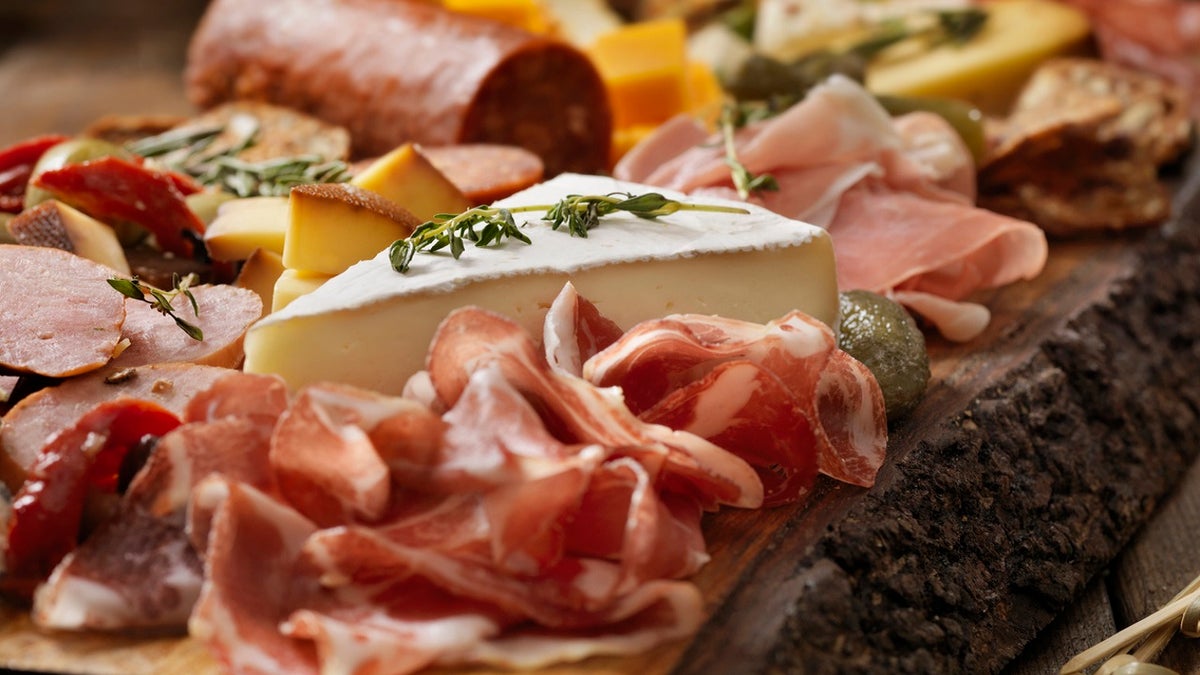
Several studies support the ANSES findings, a gastroenterologist shared with Fox News Digital — those they don't necessarily "prove causation." (iStock)
Dr. Avinash Ketwaroo, gastroenterologist and assistant professor of medicine at Baylor College of Medicine, told Fox News Digital that several studies support ANSES findings.
"While these findings do not clearly prove causation, the known impact of diet on intestinal health and the large size of many of these studies suggest caution when consuming such a diet," said Ketwaroo.
HOT DOGS: 5 LITTLE-KNOWN FACTS
"While genetics may play an important role in getting colorectal cancer, environmental factors appear to be even more important."
ANSES now recommends limiting exposure to nitrates and nitrites by not eating more than 150 grams per week of delicatessen meat — and having a balanced diet with at least five daily servings of fruit and vegetables.
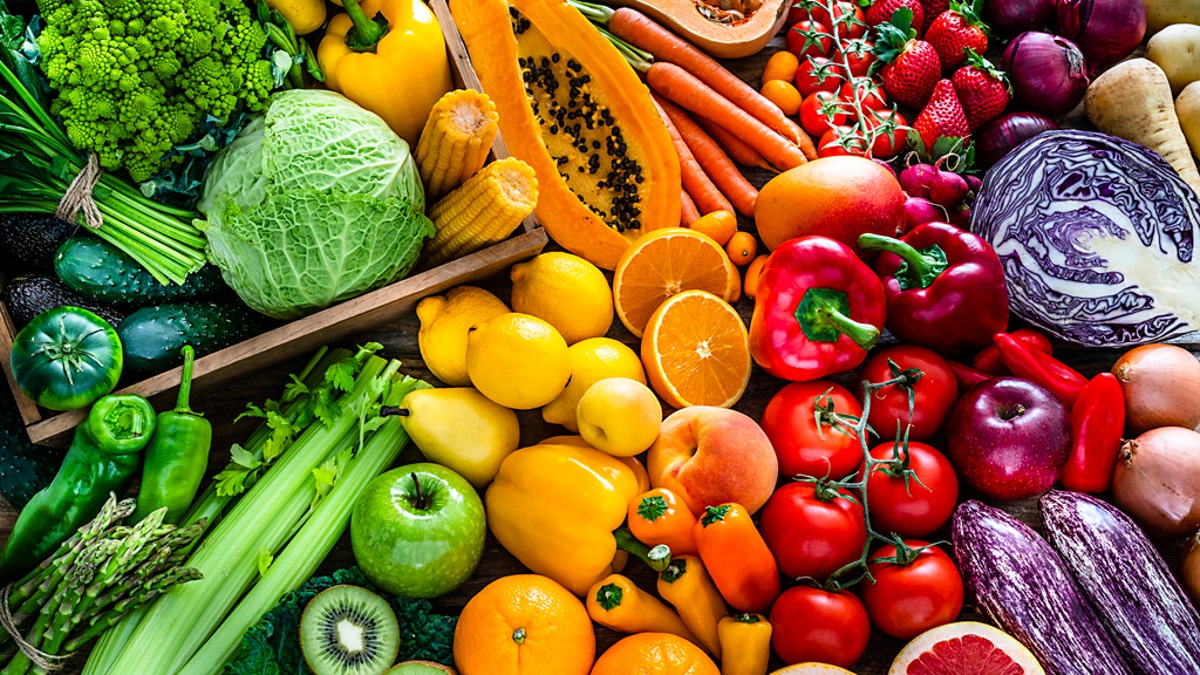
Go for the fruit and veggies! A balanced diet includes at least five daily servings of fruit and vegetables, the ANSES report says. (iStock)
"I think that the US will want to do its own research to confirm the findings of the French study," Politi said to Fox News Digital.
"I expect lobbyists in Washington will be busy trying to protect the interest of the food industry."
THIS DELICIOUS AND EASY BRUSSELS SPROUTS RECIPE COULD ROCK YOUR WORLD
She told Fox News Digital she thinks it’s possible the U.S. Food and Drug Administration (FDA) may establish a safe level of nitrates for cold cults in the future.
Fox News Digital reached out to the FDA for comment.
The agency said that it could "not speak on behalf of the food industry or actions of other regulatory authorities."
But it did note the following: "Sodium nitrite is an approved food additive which may be safely used in, or on, specified foods as regulated under the Federal Food, Drug and Cosmetic Act (FD&C)."
"After all, [the] French love cheese — which doesn’t have nitrates."
It said as well, "The FDA urges consumers not to use this product for anything except its intended use as regulated by the FDA, which includes certain labeling requirements for its use in food. The FDA has the authority to take enforcement action if a company is in violation of the FD&C Act."
CLICK HERE TO GET THE FOX NEWS APP
"I believe that a campaign geared at promoting awareness of the risks of consuming luncheon meats will be the best way to promote public health while encouraging the food industry to find alternative protein sources," Politi added in comments to Fox News Digital.
"If this bill becomes law, the French food industry will have to find alternatives to charcuterie. After all, [the] French love cheese — which doesn’t have nitrates."








































